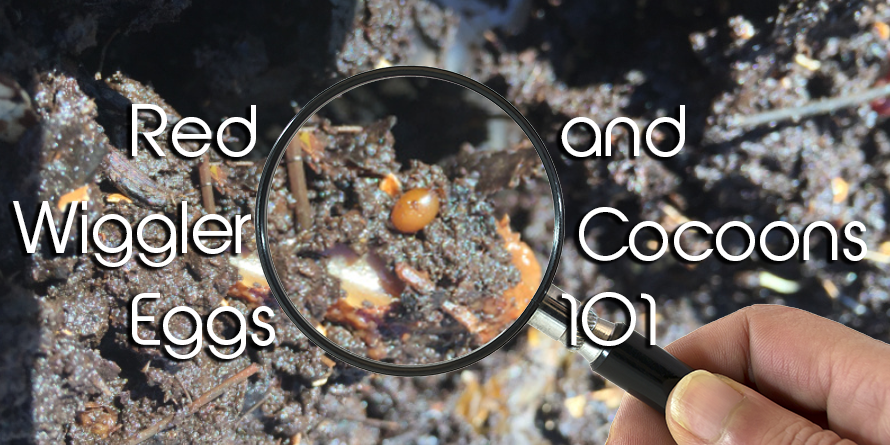Comprehensive Lawn Care Tips from Red Wiggler Express
Comprehensive Lawn Care Tips from Red Wiggler Express
Blog Article
The Unbelievable Globe of Red Wigglers: Boost Your Dirt Fertility Today
The role of red wigglers, or Eisenia fetida, in enhancing dirt fertility is a subject of expanding passion among gardeners and farming professionals. These small yet efficient microorganisms transform natural waste right into beneficial worm spreadings, dramatically boosting dirt wellness and promoting sustainable practices. As we check out the benefits of vermicomposting and the sensible actions to create a reliable worm container, the potential effect of these worms on your horticulture success ends up being increasingly noticeable. Understanding the nuances of their treatment and application may simply alter the means you approach soil monitoring. What insights can be gained from integrating these impressive creatures into your gardening routine?
Recognizing Red Wigglers
Red wigglers, medically called Eisenia fetida, are a types of earthworm that play a crucial role in improving dirt fertility. These worms flourish in organic-rich settings, such as garden compost stacks and decaying plant material, where they consume organic waste and excrete nutrient-dense castings. Their special composition, including a fractional body and a clitellum, enables them to recreate rapidly and successfully procedure large quantities of raw material.

The ecological relevance of red wigglers expands beyond simple waste handling; they add to the soil food internet, fostering a varied community of microorganisms that additionally boost dirt health and wellness. Understanding the biology and actions of red wigglers is vital for using their full capacity in sustainable agriculture and gardening techniques.
Benefits of Vermicomposting
(Red Wiggler Express)Utilizing the power of red wigglers via vermicomposting deals numerous benefits that significantly boost soil health and fertility. One of the primary benefits is the manufacturing of nutrient-rich worm castings, which are an excellent all-natural plant food. Red Wiggler Express. These castings consist of necessary nutrients like nitrogen, phosphorus, and potassium, advertising robust plant development and enhancing crop returns
Furthermore, vermicomposting enhances dirt framework and aeration. The presence of worm spreadings improves dirt structure, permitting far better water retention and drain. This balanced dampness degree is essential for origin development and the total health of plants. In addition, red wigglers aid break down organic matter, accelerating decay and recycling nutrients back right into the dirt.
Vermicomposting additionally cultivates microbial task, which is crucial for a healthy soil community. Beneficial microorganisms prosper in the visibility of worm castings, assisting in the breakdown of natural products and boosting nutrition accessibility to plants.
Finally, vermicomposting works as a reliable waste management service, minimizing garbage dump waste by recycling kitchen scraps and other natural products. This not only adds to ecological sustainability yet likewise promotes a circular economic situation within horticulture and agriculture.
How to Establish Up a Worm Container
Setting up a worm bin is an uncomplicated procedure that can considerably boost your composting efforts. Begin by selecting an ideal container, which can vary from a commercially available worm container to an easy plastic or wood box (Red Wiggler Express). Make sure the container has sufficient ventilation; tiny holes in the cover and sides will facilitate air blood circulation
Next, develop a bed linen layer to offer a comfy atmosphere for the red wigglers. This can be made from shredded paper, cardboard, or coconut coir, moistened to a wet, sponge-like consistency. Load the Resources bin to around one-third full with this bed linens material.
As soon as the bed linen is prepared, it's time to present the worms. Red wigglers flourish in natural waste, so location them delicately onto the bedding. Cover the worms with a light layer of added bedding to aid them adjust.
Feeding Your Red Wigglers
Giving the best food for your red wigglers is essential for their health and wellness and the performance of your composting system. Red wigglers flourish on a diverse diet, mostly including organic products such as vegetables and fruit scraps, coffee grounds, and shredded paper. These products not just offer necessary nutrients but likewise add to the microbial task in the worm bin, which is important for the worms' digestion.
It is necessary to stay clear of particular foods, such as milk products, oils, and meats, as these can bring in pests and create undesirable odors. Additionally, citrus peels and excessively zesty foods need to be restricted because of their prospective to damage the worms. A balanced strategy to feeding involves keeping an eye on the quantity of food presented to the bin, guaranteeing that it is taken in within a practical time frame to stop excess waste buildup.
To promote optimal digestion, it is useful to cut or shred larger food products prior to including them to the container. This technique raises the surface area for microbial activity, promoting quicker decomposition and enhancing the overall efficiency of your composting system. On a regular basis observing the worms' feeding behaviors will certainly help you adjust their diet as necessary.
Using Worm Castings in Your Yard

(Red Wiggler Express)Integrating worm spreadings into your garden can be completed by blending them into the dirt or utilizing them as a top clothing. The slow-release nature of these spreadings ensures that nutrients are readily available to plants over a prolonged period, reducing the requirement for artificial fertilizers. In addition, worm castings contain beneficial microbes that promote healthy dirt environments, enhancing the total durability of your garden.
To maximize the benefits, purpose to apply approximately one component worm castings to 3 parts dirt in your planting beds. Regular applications can bring about enhanced plant yields and much healthier plants, making worm castings a very useful source for both beginner and experienced garden enthusiasts alike. By using this natural modification, you can cultivate a successful garden while adding to sustainable horticulture practices.
Final Thought
In verdict, red wigglers exhibit the vital duty of vermicomposting in enhancing soil fertility. Their ability to convert organic waste into nutrient-rich castings substantially enriches soil structure and supports microbial diversity.
Report this page